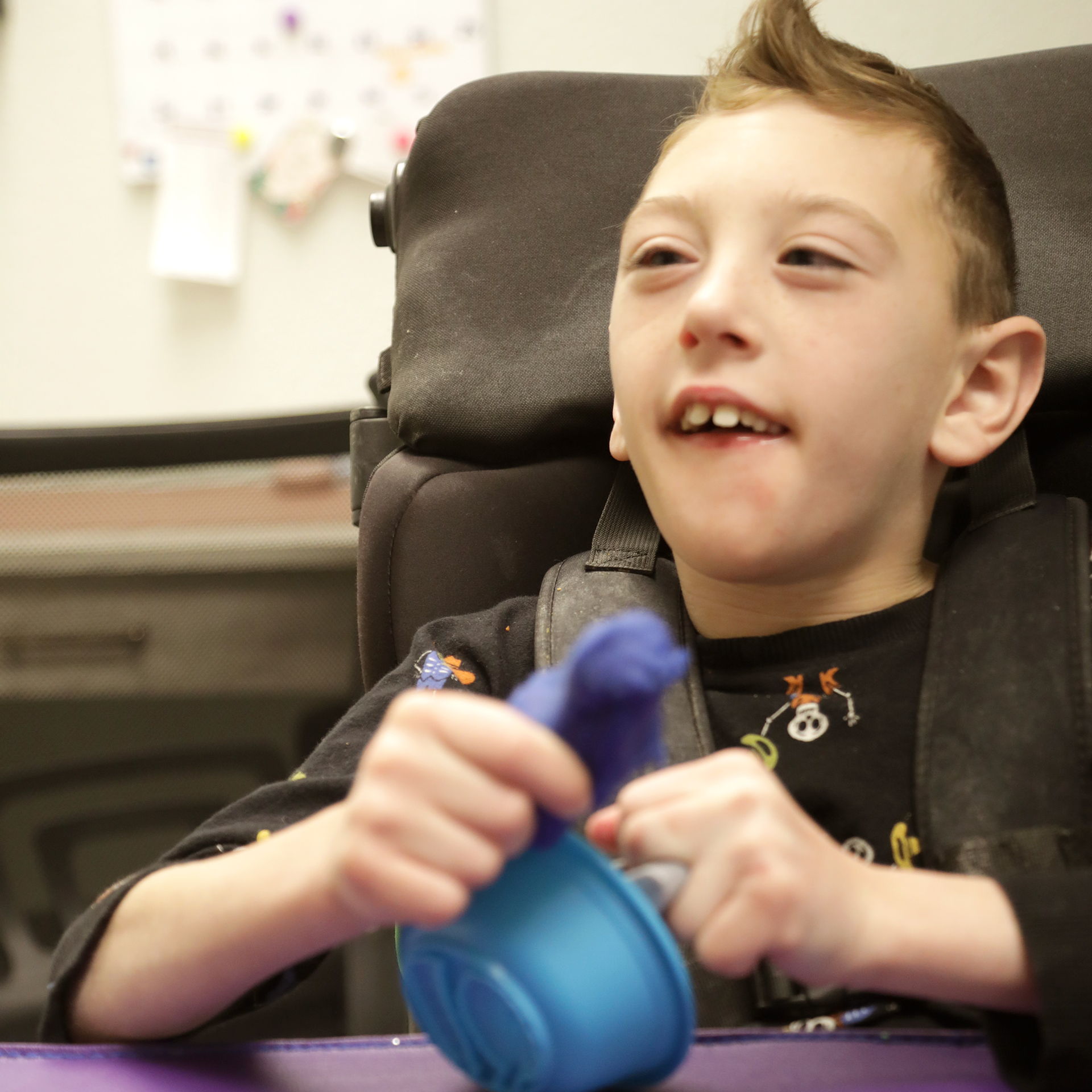Autism Behavior Technician Salary


Understanding Compensation for Autism Behavior Technicians
Autism Behavior Technicians (ABTs) play a crucial role in delivering personalized support and interventions to individuals with autism. As the demand for these professionals rises, so does the interest in understanding their earning potential. This article provides an in-depth analysis of the salaries, influencing factors, and industry comparisons to aid current and prospective ABTs in making informed career decisions.
Average Salary Overview for ABTs

General salary range
The compensation for Behavior Technicians varies by organization and geographical location. At the Center for Autism and Related Disorders, the estimated pay range is between $19–$22 per hour, translating to an annual salary that typically averages around $20 per hour, which positions this role competitively within the market.
Across the United States, Autism Behavior Technicians generally see salaries in the range of $30,000 to $45,000 per year. Factors that influence this variability include experience and educational background. Entry-level positions start at a lower salary, while individuals with advanced qualifications or certifications can expect higher earnings.
Registered Behavior Technician comparison
When looking at Registered Behavior Technicians (RBTs), the average annual salary is significantly higher, ranging from $37,000 to $45,000 according to various reports, with the Bureau of Labor Statistics noting an average of $39,520. By 2025, average salaries for RBTs have been projected at $71,987, with certain areas like Los Angeles reporting salaries up to $84,593 annually.
Comparatively, Autism Behavior Technicians hold an average salary near $56,657, while RBTs command more, with the top earners (in regions like San Jose) achieving as much as $90,344. Overall, Registered Behavior Technicians enjoy better compensation prospects and a broader salary range due to the increasing demand for their specialized skills.
Impact of Education on Salary

How does education level impact a Behavior Technician's salary?
Education level plays a crucial role in determining the salary of Behavior Technicians, particularly Registered Behavior Technicians (RBTs). Those holding higher educational qualifications typically enjoy better compensation. For instance, RBTs with a Bachelor's degree can earn significantly more than their counterparts without a degree. The salary range for these RBTs is generally from $45,000 to over $65,000 annually, depending on their years of experience.
Conversely, entry-level RBTs who have recently graduated with a Bachelor's degree usually start at a lower range, approximately between $32,000 and $43,000 each year. However, as they gain experience and advance their careers, their wages rise considerably.
The following table illustrates the comparative salary data based on education:
| Education Level | Salary Range | Average Salary |
|---|---|---|
| No Degree | $30,000 - $35,000 | $32,500 |
| RBT with Bachelor's Degree | $45,000 - $65,000 | $55,000 |
| Experienced RBT (5+ years) | $50,000 - $65,000+ | $58,000 |
Additionally, statistics show that the median salary for RBTs possessing a Bachelor’s degree varies between $70,425 and $74,797. Thus, pursuing higher education not only enhances earning potential but also opens up more job opportunities within this expanding field.
Influencing Factors on Compensation

What factors influence the salary of an Autism Behavior Technician?
Several factors influence the salary of an Autism Behavior Technician. Let's break them down:
Geographical Location:
- Areas with a higher cost of living tend to offer better compensation. For instance, the average annual salary for a Registered Behavior Technician in Los Angeles is significantly higher than the national average, with figures around $84,593.
- Salaries in the same region can vary widely, ranging from $65,529 to $97,142, reflecting local demand and living expenses.
Experience and Certifications:
- Experience plays a crucial role; registered behavior technicians (RBTs) with robust field experience earn considerably more. Entry-level RBTs often start around $47,000 annually, while seasoned professionals can make over $65,000.
- Educational background matters too. Those with advanced degrees or certifications (like BCaBA or BCBA) typically see higher salaries.
Work Setting:
- The setting in which technicians work affects earnings. Positions in private clinics or specialized facilities generally offer better pay compared to educational or community environments.
- Full-time roles often provide higher salaries and additional benefits compared to part-time positions.
This variety in influencing factors illustrates the complexity of salary expectations for Autism Behavior Technicians across different scenarios.
Roles and Responsibilities Overview

What roles do Autism Behavior Technicians typically perform?
Autism Behavior Technicians (BTs) play a vital role in supporting individuals with autism spectrum disorder (ASD). They primarily utilize applied behavior analysis (ABA) techniques to help clients overcome various challenges such as communication, socialization, and behavioral issues.
BTs are typically entry-level professionals who interact directly with clients in a variety of environments, including:
- Homes: Conducting sessions in a familiar setting can be less intimidating for clients.
- Schools: Providing support during educational activities enhances learning experiences.
- Community Centers: Engaging in social skills development within a community context promotes generalization of skills.
They implement treatment plans developed by board certified behavior analysts (BCBAs), which specify individualized goals for each client. This structured approach ensures that the interventions target specific needs effectively.
Moreover, data collection is a fundamental part of a BT's responsibilities. By meticulously recording clients’ progress, BTs contribute to evaluating the effectiveness of the treatment plans, guiding necessary adjustments for enhanced outcomes. This vital function not only aids in tracking progress but also facilitates ongoing professional development for the technicians as they refine their skills in real-world applications.
Role settings
The work environment for Autism Behavior Technicians can vary widely. BTs may find themselves working in:
| Setting | Description | Benefits |
|---|---|---|
| Home | Sessions in a comfortable setting | Familiarity reduces anxiety for clients |
| School | Support during learning activities | Fosters educational engagement |
| Community | Engaging with peers | Enhances social integration and skill generalization |
Each of these settings allows BTs to adapt their techniques according to the clients' unique needs, promoting skill development in contexts where clients are most comfortable and likely to thrive.
Comparative Analysis with Similar Positions
How does the salary of an Autism Behavior Technician compare to similar positions?
The salary of an Autism Behavior Technician is generally comparable to similar positions such as Autism Aides, though slight variations exist depending on roles and responsibilities. For example, Autism Aides have reported salaries averaging around $48,000 annually, which is somewhat higher than the estimated annual compensation for Behavior Technicians who typically make between $30,000 to $45,000 based on their experience and location.
To visualize these differences, consider the following table:
| Position | Average Salary Range | Factors Influencing Salary |
|---|---|---|
| Autism Behavior Technician | $30,000 - $45,000 annually | Experience, education level |
| Autism Aide | Approximately $48,000 | Role responsibilities, certifications |
| Registered Behavior Technician | $39,520 - $45,000 annually | Certifications like RBT, experience |
The pay for both roles reflects the growing demand for employee support within the realm of behavior analysis. Moreover, obtaining relevant certifications, such as the RBT certification, can significantly enhance job prospects and salary potential. With job growth for Registered Behavior Technicians projected to expand significantly in the next decade, both positions are likely to see positive salary trends as the job market continues to evolve.
Challenges and Rewards in the Role
What challenges are associated with being a Behavior Technician?
Behavior Technicians encounter a variety of challenges in their day-to-day work, primarily revolving around the complex needs of children with autism. One of the major obstacles is managing aggressive behaviors that may arise during therapy sessions. This requires not only practical skills but also considerable emotional resilience, as they face stressful and sometimes unpredictable situations.
Communication barriers add another layer of difficulty, particularly when working with non-verbal individuals. Technicians must often rely on alternative communication strategies to effectively engage their clients and foster understanding.
In addition to interpersonal challenges, Behavior Technicians have the responsibility of implementing detailed behavior intervention plans under the guidance of Board Certified Behavior Analysts (BCBAs). This necessitates a solid understanding of autism spectrum disorders and effective behavioral strategies to ensure positive outcomes.
Data collection is an essential part of their role. Behavioral data must be meticulously gathered during sessions to track progress and justify the need for ongoing services. This administrative task can add a layer of complexity to their hands-on responsibilities.
Building rapport with families is also crucial, as it helps in creating a supportive environment. However, this too demands emotional investment and patience, as technicians work to educate and empower parents in implementing behavior therapies at home.
Entry-Level Suitability and Opportunities
Is the job of a Behavior Technician suitable for entry-level applicants?
Yes, the job of a Behavior Technician is well-suited for entry-level applicants. This role is often accessible, especially when qualified as a Registered Behavior Technician (RBT). As of January 2025, the median salary for an entry-level RBT in New York, NY is approximately $48,139.
Salary ranges can be quite variable within this field. For instance, entry-level positions can yield salaries as low as $39,199 at the 10th percentile, while those in the 75th percentile can earn around $54,488.
Salary Insights for Entry-Level RBTs
In the domain of Applied Behavior Analysis Therapy, entry-level roles may come with even more favorable compensation. Some averages reported for these positions can reach $86,863 for median salaries, with the lower end at about $68,186 for the 10th percentile.
Factors Influencing Compensation
The variation in these salaries is influenced by several factors:
- Education Level: Higher degrees often result in better pay.
- Certifications: Possessing credentials like the RBT certification greatly enhances job prospects and salary potential.
- Experience: Even entry-level positions can see salary increases based on hands-on experience and training.
The field presents a promising entry point for newcomers, especially given the projected job growth for Registered Behavior Technicians of 12% to 22% in the next decade, spurred by the rising awareness and funding for ABA therapy.
| Location | Median Salary (Entry-Level) | Salary Range (Entry-Level) |
|---|---|---|
| New York, NY | $48,139 | $39,199 - $54,488 |
| RBT in ABA | $86,863 | Approx. $68,186 - High |
Pathway to Becoming an Autism Behavior Technician
How can one become an Autism Behavior Technician?
To embark on the journey to becoming an Autism Behavior Technician, the first step is to complete a 40-hour training course that aligns with the requirements for Registered Behavior Technician (RBT) certification. This training is overseen by the Behavior Analyst Certification Board (BACB) and covers essential elements such as:
- Applied Behavioral Analysis (ABA): Understanding the principles of ABA is crucial for effective practice.
- Data Collection: Learn how to systematically collect and interpret data to measure progress.
- Ethical Decision-Making: Familiarize yourself with ethics in behavior therapy, ensuring client welfare is prioritized.
- Behavior Intervention Strategies: Develop skills to implement strategies that facilitate positive behavioral changes.
Upon completion of the training course, candidates need to pass a competency assessment, which is conducted by a Board Certified Behavior Analyst (BCBA) or another qualified professional. Success in this assessment is a prerequisite for certification.
Next, candidates can apply for RBT certification through their BACB account and must also successfully pass the RBT exam, a comprehensive assessment comprised of multiple-choice questions.
After achieving certification, it's important to maintain RBT status through ongoing supervision and timely renewal, ensuring that professionals stay up-to-date in this evolving field.
Acquiring certification not only enhances job prospects but also allows for better earning potential in the long run.
Future Trends and Salary Outlook

Projected Job Growth
The demand for Registered Behavior Technicians (RBTs) is expected to experience significant growth over the next decade. Projections indicate an increase of 12% to 22% in job opportunities. This growth is primarily driven by a heightened awareness of the benefits of Applied Behavior Analysis (ABA) therapy and accompanying funding initiatives. As more families and educational institutions seek ABA services, the need for qualified behavior technicians will grow.
Implications for Salary Trends
With rising demand, salaries for RBTs are likely to reflect this upward trend. Currently, entry-level positions for RBTs begin around $47,000 annually, while seasoned professionals can earn between $50,000 and over $65,000. Notably, factors such as education and certifications significantly influence the earning potential; those with advanced degrees or relevant certifications often receive higher salaries.
The average annual salary for RBTs in different locations also showcases variability, such as in Los Angeles, where salaries range from $65,529 to $97,142, and the average salary sits around $84,593. Given these trends and the continuous evolution of the field, RBTs can expect future salaries to align positively with job growth and opportunities, especially as more professionals obtain RBT certification and specialized training.
Concluding Insights on ABT Salaries
As the field of autism therapy continues to expand, understanding the compensation structure for Autism Behavior Technicians becomes increasingly crucial for those considering or advancing in this career. With salaries influenced by a variety of factors including education, experience, and geography, ABTs are positioned within a dynamic industry with substantial opportunities for growth. Ensuring access to competitive salaries and fulfilling roles, this career path offers both challenges and rewards, making it a compelling choice for individuals dedicated to making a positive impact on the lives of those with autism.
References
- Center for Autism and Related Disorders Behavior Technician ...
- Autism Behavior Technician Salary: What to Expect
- Registered Behavior Technician-Applied Behavior Analysis Salary ...
- What is a Behavior Technician? - LEARN Behavioral
- A Day in the Life of a Behavior Technician
- What is an Autism Behavior Technician?
- Applied Behavior Analysis (ABA) - Autism Parenting Magazine
- ABA Therapy at Home: All You Need to Know
- Registered Behavior Technician Salary in the United State
- Behavior Technician Registered Behavior Technician Rbt Salaries
Recent articles

Compassionate Pediatric Therapy in Butte, Montana
A welcoming place where every child’s potential is celebrated

How Pediatric Therapy Helps Kids Thrive across Montana and Wyoming
A supportive guide for families exploring therapy options in Billings, Butte, Missoula or Sheridan.

How to Choose the Right Pediatric Therapy Clinic in Billings, Montana
A Parent‑Friendly Guide To Finding The Best Support For Your Child

Expressive Speech Delay 2-Year-Old
Understanding and Addressing Expressive Speech Delay in Toddlers

How Speech Recognition Works
Unlocking the Power of Speech Recognition in Therapy and Healthcare

Autism and Head Size
Understanding the Complex Relationship Between Autism and Head Size

